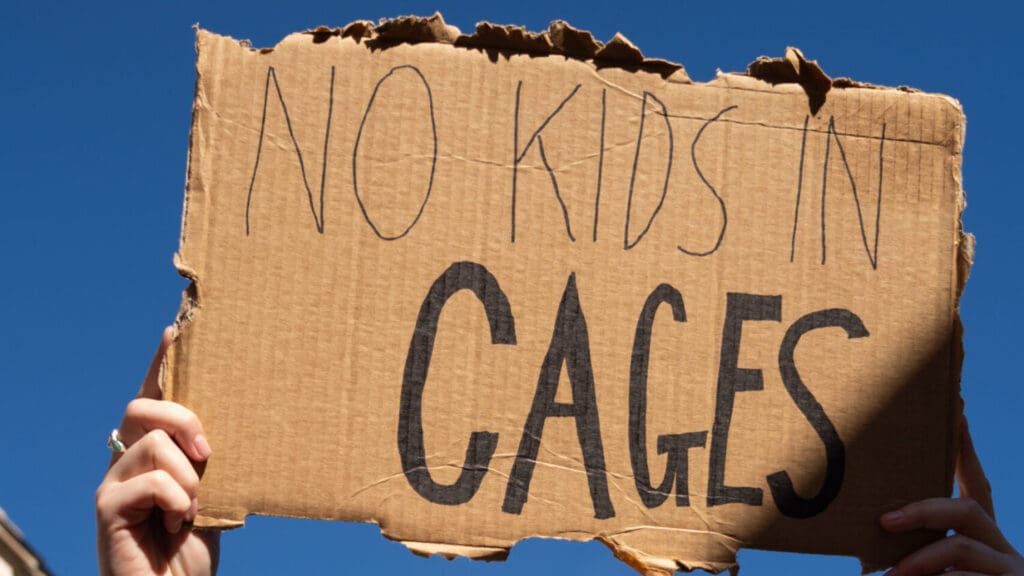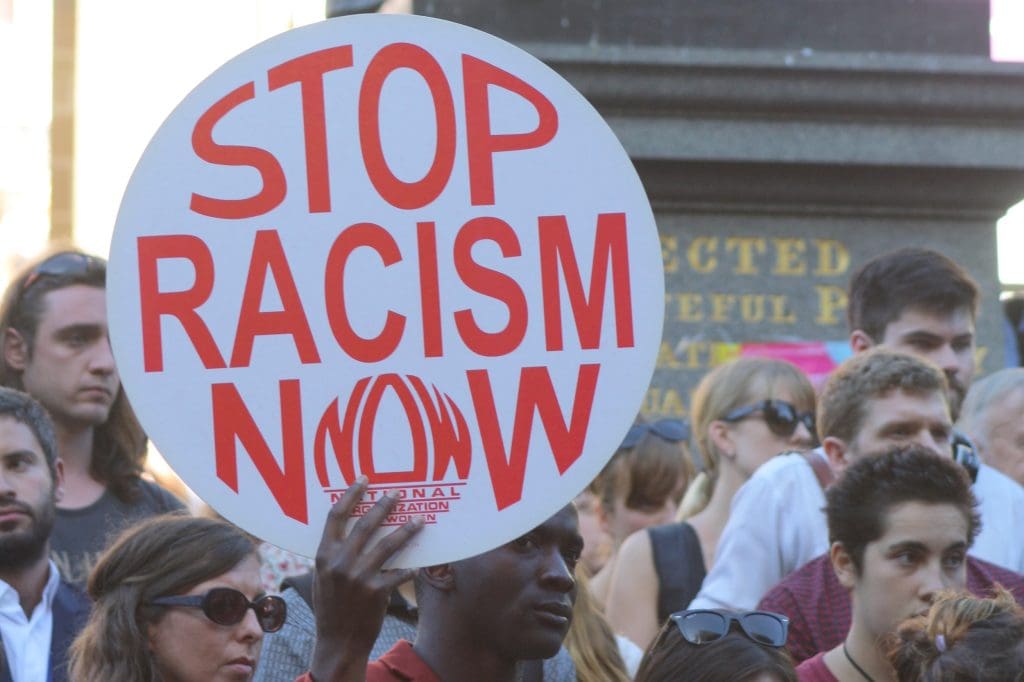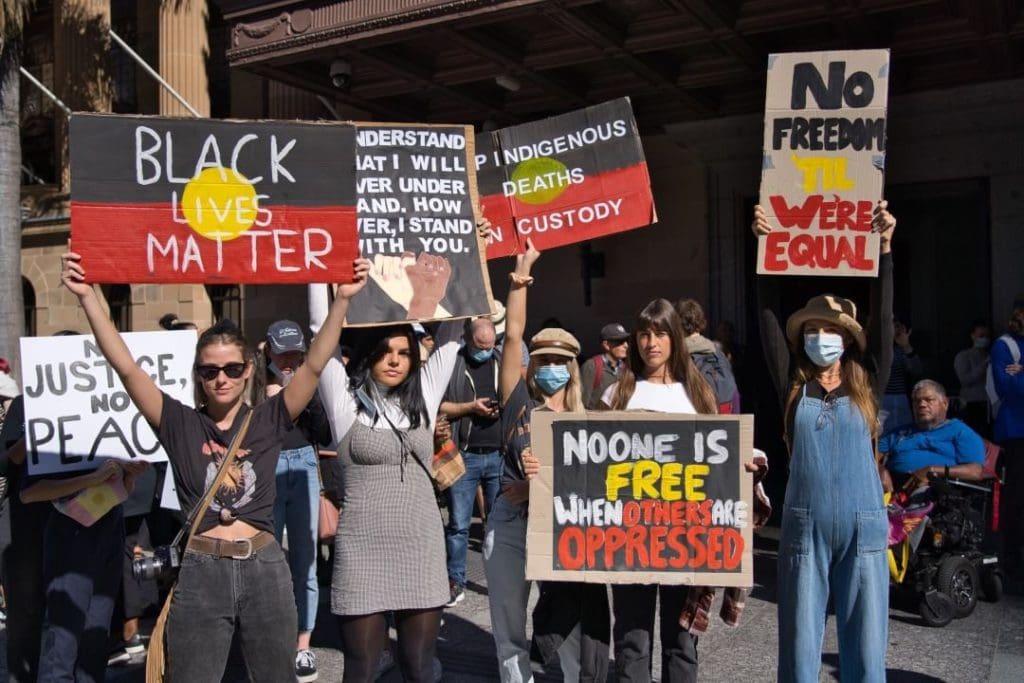‘Tough on crime’ doesn’t work and is destroying Indigenous women and families
OPINION | This piece was first published in The Guardian
Aboriginal and Torres Strait Islander women are the fastest growing prisoner population in Australia. This is a gravely urgent crisis that profoundly affects our women, our children and ultimately entire communities.
Governments can no longer plead ignorance when it comes to the risks associated with locking up Aboriginal and Torres Strait Islander women. The tragic and preventable death of Ms Dhu, a 22-year-old Yamatji woman, while in WA police custody because of unpaid fines is a devastating example of how the justice system fails our women.
Most Aboriginal and Torres Strait Islander women in prison are mothers and carers. Most are also survivors of physical and sexual violence. Many also struggle with housing insecurity, poverty, mental illness, disability and the effects of trauma and colonisation. Too often, the impact of the justice system is to punish and entrench disadvantage, rather than promoting healing, support and rehabilitation.
I spent many years in and out of the courts, children’s homes and jails. I faced a lot of challenges. Some are like those of many other Aboriginal and Torres Strait Islander women in prisons and police cells. I was stolen generation and my mum was too. I was taken when I was two years old. Child welfare and the police held me responsible for things that kids at home with their families never would have been. I never learned “normal” relationships. I was on my own by the age of 13. I ended up squatting and got addicted to heroin.
When I was young, I felt like I didn’t have power to do anything. All I could do was rebel in my own way and run away. When I was 17, I went to adult prison for self-administering heroin and returned shortly after release for credit fraud. I then found some stability in my life and managed to stay on the “right” side of the fence for the next 10 years. When I did go back inside, it was after losing my son in a bitter custody dispute with a violent ex-partner, other violent relationships and sexual assault.
I know, like too many Aboriginal and Torres Strait Islander women, what it feels like to be stuck in a violent relationship and to have no trust in police. I know what it is like to have police press charges against you even though you are the victim.
The last time I went to prison it was because I injured someone – accidentally, but seriously. It is a deep source of shame, but it was also a big wake-up call. While in prison, I fought to be allowed to study philosophy, sociology, literature and writing, and worked with lawyers and activists, as an equal, to successfully challenge prisoner voting ban laws in the high court. I’ve always been an avid reader and had a strong sense of justice.
While education in prison was important for me, what would have been more helpful would have been not being taken from my mother, and not being criminalised at a young age. I needed support, stable housing and healing when I was young, not punishment. Later, I needed stable housing to escape family violence, but I was unsafe and vulnerable.
Governments need to recognise that our women have different needs and strengths to men. This week I joined Change the Record and the Human Rights Law Centre to launch a new report, Over-represented and overlooked: the crisis of Aboriginal and Torres Strait Islander women’s over-imprisonment. This report is important because it focuses on Aboriginal and Torres Strait Islander women, who have been overlooked for too long.
Too many of our women are trapped in an unresponsive criminal justice system. What is needed are approaches that deal with drugs, family violence, housing, loss of self-esteem, disconnection from country and culture and the myriad other cultural complexities faced by Aboriginal and Torres Strait Islander women, which result in increasing numbers of our women and young girls being criminalised.
The criminal justice system assigns personal responsibility and punishes Aboriginal and Torres Strait Islander women for actions that are the consequence of failed child removal and forced assimilation policies. If we are truly concerned about justice for Aboriginal and Torres Strait Islander women however, we should be asking ourselves and our governments how we as a society have so badly failed these women.
We need alternatives that are healing, not punitive. There’s nothing to be gained from a punitive approach; it doesn’t deter crime. You need to respect women’s dignity, but so often the criminal justice system takes that away.
The criminal justice system damages women, children, men, entire communities. Governments need to get rid of laws that are criminalising so many of our women. When women go to jail, kids are often left behind and go into the child protection system. We have no trust in that system.
“Tough on crime” does not work. We need more prevention and diversion. Governments should be looking for ways to close prisons. Governments, courts and police need to work with and learn from Aboriginal and Torres Strait Islander people. We know the solutions – investment in housing, education and health – that’s what makes a difference and helps communities stay strong and healthy.

Australia’s racist youth justice policies taken to the UN
The Human Rights Law Centre has supported Associate Professor Hannah McGlade to submit an urgent action complaint to the United Nations Committee on the Elimination of Racial Discrimination.
Read more
International Day for the Elimination of Racial Discrimination
Today is the International Day for the Elimination of Racial Discrimination, which Australia pledged in 1975 to do in accordance with international law. It’s a timely reminder that we must combat racism, wherever and whenever it arises, to challenge injustice and promote equity.
Read more
The Age Of Innocence
No child should ever grow up in a prison cell. Children belong in schools and playgrounds. Funnelling children into prisons does not make communities safer, it undermines them.
Read more



